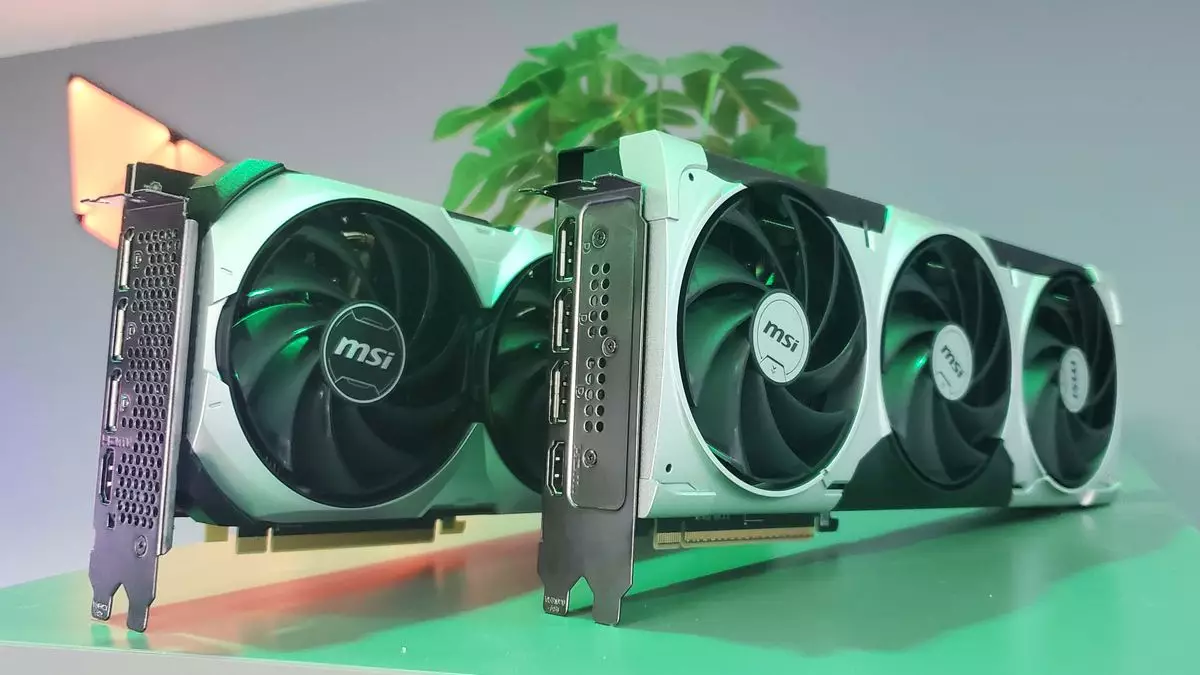The world of PC gaming has undergone seismic shifts in recent years, especially concerning the availability of powerful hardware. As the demand for high-performance graphics cards continues to surge, consumers are often left grappling with scarcity and convoluted purchasing processes. One response to this chaos is Newegg’s revamped lottery system, aptly titled Newegg Shuffle. With excitement building around the release of Nvidia’s RTX 5070 and RTX 5070 Ti, the reemergence of this system provokes a mix of anticipation and skepticism among enthusiasts.
The Newegg Shuffle operates under a lottery mechanism that allows consumers to enter for a chance to purchase high-demand products. Unlike the typical “Add to Cart” functionality, consumers must identify products equipped with the “Enter the Shuffle” button, indicating their eligibility for a purchasing opportunity. This system was first introduced during the pandemic when the demand for Nvidia’s RTX 30-series graphics cards skyrocketed. Even now, as gamers and creators look forward to the arrival of these cutting-edge cards, reports suggest that the needs of consumers remain largely unmet despite the Shuffle’s implementation.
Critics have pointed out that while lotteries may offer a semblance of fairness in purchasing opportunities, they are still a far cry from solving the underlying issue of availability. The process is still a game of chance, leaving many hopeful consumers disappointed when they are ultimately unable to secure their desired hardware.
This duality of hope and frustration pervades discussions about the upcoming RTX 5070 and RTX 5070 Ti, which are set to officially launch on February 20 and March 5, respectively. Enthusiasts are eagerly awaiting the specifications and comparative performance insights that will emerge following these releases. However, the reliance on a lottery system raises questions about accessibility and equity in hardware procurement. The potential for widespread disappointment, especially among those who cannot swiftly navigate the Shuffle’s intricate mechanics, fuels worry that this approach does little to alleviate the frustration of securing a coveted item.
The pre-release enthusiasm is palpable, with Nvidia’s forward-thinking designs promising to push the limits of gaming and productivity. Nevertheless, it is essential to recognize that the preparation for these launches involves far more than mere anticipation; consumers are investing time and effort in navigating a convoluted purchasing landscape fraught with unpredictability.
A Growing Concern: Stock Levels and Market Dynamics
Given the tight supply chain issues that plagued earlier graphics card releases, the staggered launch of the RTX 5070 and RTX 5070 Ti poses a calculated risk. Feedback from recent releases, notably concerning the RTX 5090, suggest that significant hurdles remain with production capabilities and stock availability. Gamers are left to ponder whether Nvidia’s strategy will pave the way for a smoother experience this time around or if it serves as a stopgap measure in a larger, unchanged landscape.
Moreover, consumers are now faced with the added layer of evaluating potential competition among various release options. As the market continues to evolve, it is unclear whether the demand for Nvidia cards will sustain its current trajectory or if newer contenders might emerge to challenge the status quo.
As the landscape of high-end gaming technology continues to morph, consumers must remain vigilant amidst the uncertainty surrounding product availability. The Newegg Shuffle might promise to bring an element of transparency to the purchasing process, but it also underscores the challenges consumers face when navigating a flawed system. Upcoming product launches will undoubtedly spark debates around accessibility, fairness, and efficiency in procurement processes. Until these complexities are addressed, one can only hope that the excitement of new technology does not overshadow the difficulties of obtaining it. In an industry driven by innovation, resolving these challenges will be crucial for ensuring that all consumers can participate in the evolving narrative of PC gaming.

